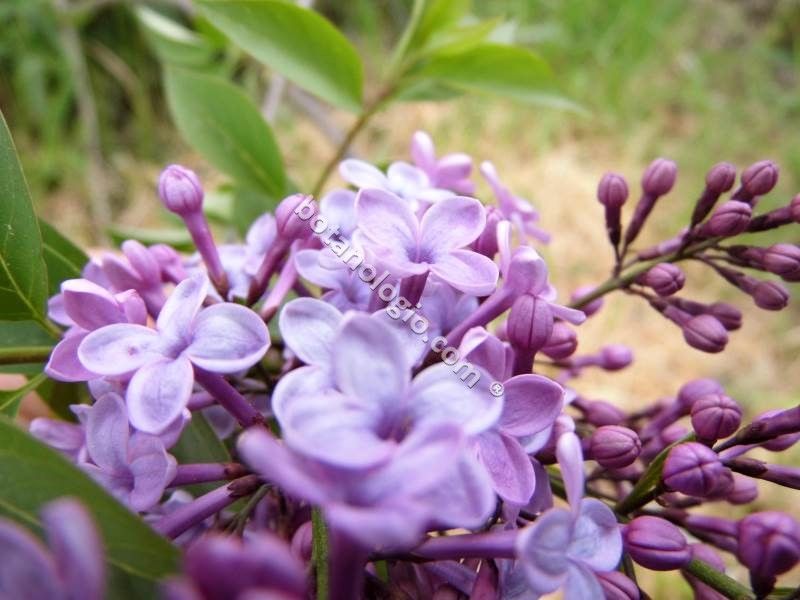Poisonous Plants and Herbs I Part 1

There are many ornamental and medicinal herbs and plants in the Greek countryside, some of which are poisonous. It is not necessarily bad poisonous plants to exist, mainly due to their many pharmaceutical applications.
It is necessary, however, to know which herbs are, so that we can be protected. Since ancient times, their use has been known, as well as the properties of every plant. The direct effect of poisonous herbs on the body makes them different from herbal remedies with properties that take time to see the positive effects of a treatment. As a general rule, poisonous herbs cause diarrhea, vomiting, dizziness and convulsions. In more severe cases, they cause dyspnoea, arrhythmias, paralysis and many other symptoms that require immediate treatment.
Below are some of the most famous poisonous plants, which can be found in the Greek countryside but also in gardens for decorative purposes.
| Scientific name | Common name | Toxic parts | Symptoms |
| Acer rubrum | Red maple | Leaves | Jaundice, lethargy, coma |
| Aconitum | Wolf’s bane | The whole plant | It is considered the most toxic, lethal plant, while causing poisoning and through contact with the skin. |
| Actaea spicata | Actaea spicata | Fruit | It affects the human heart muscle, it can cause heart attack. |
| Agave | Agave | Juice | Severe skin disorders |
| Alocasia | Alocasia | Leaves & branches | Irritation of mucous membranes, swelling of lips, tongue and palate |
| Anthurium | Laceleaf | The whole plant | Irritation of mucous membranes, swelling of lips, tongue and palate |
| Asparagus densiflorus | Plant from asparagus family | Fruit | Skin irritation, redness, swelling, blistering |
| Atropa Belladona | Belladonna | The whole plant | Dry mouth, burning sensation, nausea, confusion, delirium |
| Caladium | Heart of Jesus | The whole plant | Irritation of mucous membranes, swelling of lips, tongue and palate |
| Chrysanthemum indicum | Indian chrysanthemum | Leaves & stamens | Dermatitis |
| Clivia | Clivia | The whole plant | Nausea and diarrhea |
| Codiaeum variegatum croton | Garden croton | Leaves & juice | Burning in the mouth, in contact with the skin causes eczema |
| Colchicum byzantinum | Byzantine meadow saffron | The whole plant | heart failure |
| Conium maculatum | Hemlock | The whole plant | Nausea, vomiting, salivation, fever, progressive muscle weakness, muscle paralysis and respiratory disorder that can lead to death. |
| Cyclamen persicum | Persian cyclamen | Bulbs | Stomach cramps, nausea, diarrhea |
| Cytisus scoparius | Scotch broom | The whole plant | Mucosal irritation, increase in pressure, increase of diuresis and tachycardia, gastric pain and diarrhea. |
| Datura innoxia | Angel’s trumpet | The whole plant | Agitation, intense nausea, poor focus, rapid heart beat, intense disorientation, memory loss, loss of time, delirium, sensitivity to light and noise, nosebleed, loss of body control, coma, drowsiness, illusion, temperature increase. |
| Datura stramonium | Jimsonweed | The whole plant | Nausea, hallucinations, taken in large amounts can cause death. |
| Dieffenbachia | Dumb canes | The whole plant | Irritation of mucous membranes, swelling of lips, tongue and palate |
| Dracunculus vulgaris | Dragon lily | The whole plant | It is toxic but after boiling or drying it is harmless |
| Ecballium elaterium | Ecballium | Mostly the fruits | Laxative, analgesic, has been used in ancient times as a medicine |
| Epipremnum syn.Scindapsus | Devil’s ivy | The whole plant | Irritation of mucous membranes, swelling of lips, tongue and palate |
| Euonymus | Spindle tree | Fruit, leaves, flowers, bark | Emetic, laxative, anthelmintic, abdominal pain, dermatitis. |
| Euphorbia | Spurges | Juice, leaves | Nausea, diarrhea, vomiting and irritation. Contact with skin causes dermal irritation. |
The toxic parts differ in each plant as well as their effects on humans. It always depends on the age, weight and sensitivity of each organism. Toxic substances contained in plants can cause dermatitis, allergies and poisoning depending on use (ingestion or contact). It is important to note that many of the aforementioned plants are used in pharmaceutical and homeopathy precisely because of the existence of the particular substances, their analgesic, antiinflammatory or particular therapeutic effect. Nevertheless, they should never be used without the advice of a specialist.





